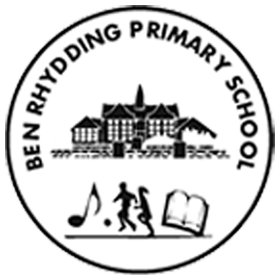RE at Ben Rhydding
Intent
Religious Education is about posing questions about the meaning and purpose in life and beliefs in God. It encourages children to learn about a range of different religions and world views, whilst examining the moral issues, attitudes and values of people and society. It develops children’s knowledge and understanding through exploring different religions and faiths in detail, by asking questions as they learn, recognising and reflecting on their own experiences and opinions, and those of others.
Implementation
Religious Education is taught from Reception to Year 6 with key values and beliefs being revisited in whole school assemblies. We follow the Bradford Agreed Syllabus, as this supports children in developing their sense of identity and belonging, and enables them to thrive individually, as an important part of our community, as well as a member of the wider world. There are three key words that structure our curriculum are:
- Believing (what people believe)
- Living (how those believes are acted out)
- Thinking (how believes interact with our own moral compass and world view)
Each Religious Education lesson is started with a question or line of enquiry which the children explore. In the Early Years and Key Stage 1, teaching and learning is delivered through a range of opportunities including role-play and discussion, and is focused on children having a sense of identity and belonging. Children learn about the facts of Christianity and other Religions (Islam and Judaism) and begin to express their opinions and viewpoints. They reflect on the beliefs and values of others and learn to treat these with respect. Throughout Key Stage 2 children learn more about the religions studied in Key Stage 1, but also about different religions (Hinduism, Buddhism and Judaism) and world views (Humanism and Atheism). They consider their own viewpoints and the opinions of others, while discussing different beliefs, values, attitudes and morals, again relating their viewpoints to their own experiences, whilst respectfully understanding and appreciating the experiences and opinions of others. Children are encouraged to explore themes within religions, identifying similar beliefs and attitudes, as well as developing an awareness of differences. We provide children with opportunities to visit different places of worship, listen to and ask questions of visitors of different faiths invited into school and share with the children artefacts from other religions.
Supporting SEND
Children with SEND are supported in lessons to access the curriculum. Teachers use a multisensory approach and vocabulary is introduced at the start of each unit of work and explicitly explained to children. Adaptions are made to teaching and learning so all children can participate, learn from and feel supported in their Religious Education journey.
Impact
Religious Education encourages our children to be curious and to demonstrate humanity. It helps to prepare them for adult life by developing respect for and sensitivity to others and acceptance of other religions, cultures and faiths. Children develop compassion, empathy, reflection and the ability to think philosophically as they progress through school.
What pupils say…
Child A – “I enjoy RE as I get to learn about different people, and I find that really interesting.”
